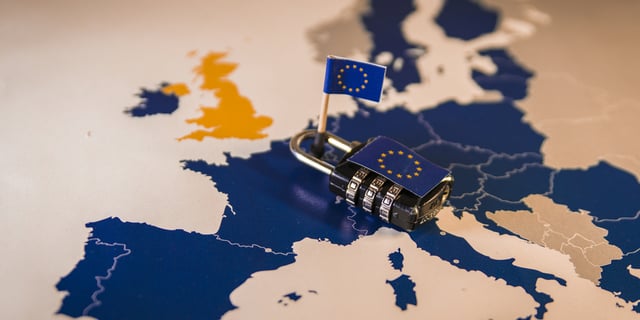This week's review of ad fraud and quality in the digital advertising space.
1. Malvertising becoming a bigger problem on mobile devices

"Malvertising has been a problem for years, but lately has become more pervasive on mobile devices," wrote the New York Times. The article warns of a fake "Congratulations!" message appearing to come from Amazon about winning prizes. "Those persistent pop-up messages are not from Amazon, but are part of a wave of malicious display advertisements — also known as 'malvertising' — invading desktop, Android and iPhone browsers," wrote the New York Times. "The intrusive ads can also appear when browsing links that are posted on Facebook."
2. GDPR impact: Google limits DoubleClick ID use

The pending GDPR regulation is already having an impact for programmatic advertisers. "Google is making it more difficult for advertisers to have an independent view of the data generated from ad buys in its ecosystem," reported AdExchanger, noting that Google "will no longer let buyers use the DoubleClick ID when leveraging its data transfer service."
3. Advertisers and agencies can't agree on whose to blame for 'transparency' issues

Digiday this week noted that while advertisers and agencies agree that transparency remains a problem in the digital ad ecosystem, they can't agree on where the blame belongs. "Transparency was unsurprisingly the recurring theme at the Digiday Programmatic Marketing Summit Europe in Estoril, Portugal, where it was clear the issue is far from solved," the article read. "Advertisers blamed poor guidance from agencies more concerned with protecting margins on programmatic buys, while agencies challenged advertisers to pay more to understand how those investments work."
4. The GDPR is causing some marketing tech vendors to pull out of Europe altogether

"With the General Data Protection Regulation (GDPR) approaching, several marketing tech firms are pivoting their business models to avoid the risk of getting their hands slapped," wrote eMarketer. The article notes: "Rather than risking fines, some vendors are pulling out of Europe."
5. Study on social media influencers finds 'lots of fake followers'

According to Advertising Age, Points North Group examined the paid influencers of some of the world's leading brands and calculated the percentage of those influencers' social media followers that were actually fake. The study found that up to 78% of the followers of one brands' social influencers were fake. That number was notably higher than some of the other brands studied (other numbers cited, for different brands, were 19% and 32%).
Sign up for our blog to stay updated with new stats, trends, and analysis on digital ad fraud.










